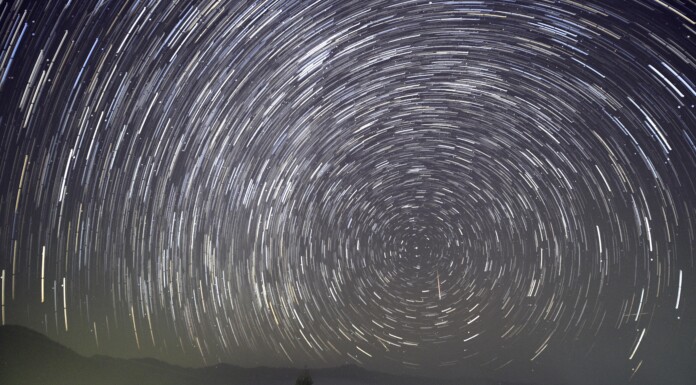Southern Wairarapa has recently gained Dark Sky Reserve status. But there is growing concern that researching the sky from Earth could become impossible in the next decade. Reporter GRACE PRIOR spoke to astronomers for International Dark Sky Week.
University of Canterbury Emeritus professor and astronomer John Hearnshaw says countless pieces of satellite and odd bits of rocket casings – ‘space junk’ – are impeding astronomer’s view of the night sky.
So great is his concern for the future of space research it’s seen him deliver a petition to the steps of Parliament to protect the dark skies.
Hearnshaw says space junk and functional satellites reflected sunlight, making astronomical observations harder for researchers.
“Some of this space junk is very small in size, just a few millimetres across, but when objects of that size are travelling at several thousand kilometres per hour, which is fast, and strike another satellite, it can cause a lot of damage,” he says.
Hearnshaw maintains space junk not only creates light pollution, but is a danger to other satellites.
“The bottom of satellites in orbit, even when it is night time on earth, can still be lit by the sun.”
He says the effect creates an unwanted ‘satellite streak’ for astronomers observing and photographing the stars.
Hearnshaw said it has been predicted that by 2030, there could be about 100,000 satellites circling the Earth.
“That would just about make astronomical research of certain types impossible. The future of ground-based astronomy could be limited to less than 10 years.”
Local astrophotographer and Under The Stars owner Chris Murphy says satellite internet systems have an obvious appeal for the advantages they bring in communication, especially in emergency management.
“The concern for astronomers and anyone who simply appreciates the beauty of the night sky, is that there could be a kind of arms race in which many of the world’s largest companies compete for better coverage, littering the night sky with satellites.
“To some degree, this is already happening.
“These companies need to be aware of the impact of their plans and employ countermeasures.”
According to the International Dark Sky Association [IDA], light pollution has been increasing at double the rate of population growth, and 83 per cent of the global population lives under a light-polluted sky.
Light pollution, however, is not just a problem in space.
Hearnshaw says light from street lights, houses, and other places is also making it more difficult to see the stars.
Although some people argue street lights are necessary for safety, Hearnshaw says better lights, that produce less blue light and only illuminate the ground, could be used.
Protecting the night skies also extends to safeguarding human health and the environment, he says.
“A lot of people don’t realise that light pollution is very bad for health because light at night disrupts the production of various hormones; the
most important is melatonin, which is only produced when you sleep and in darkness.”
He says people who sleep with light encroachment in the bedroom risk becoming melatonin deficient, with some resulting health issues including cancer.
Murphy says human beings are conditioned to have alternating bright sunlight during the day and darkness at night, “and suddenly towns and cities are awash with street lights 24 hours a day”.
Hearnshaw says almost all plants and animals are adversely affected by light pollution at night, causing a large range of issues, with the impact on insects the most concerning.
“Insects often congregate towards artificial lights at night, and that makes it easy for them to be predated.
“A lot of insect populations are declining, but they’re vital for ecosystems because they pollinate plants.”


